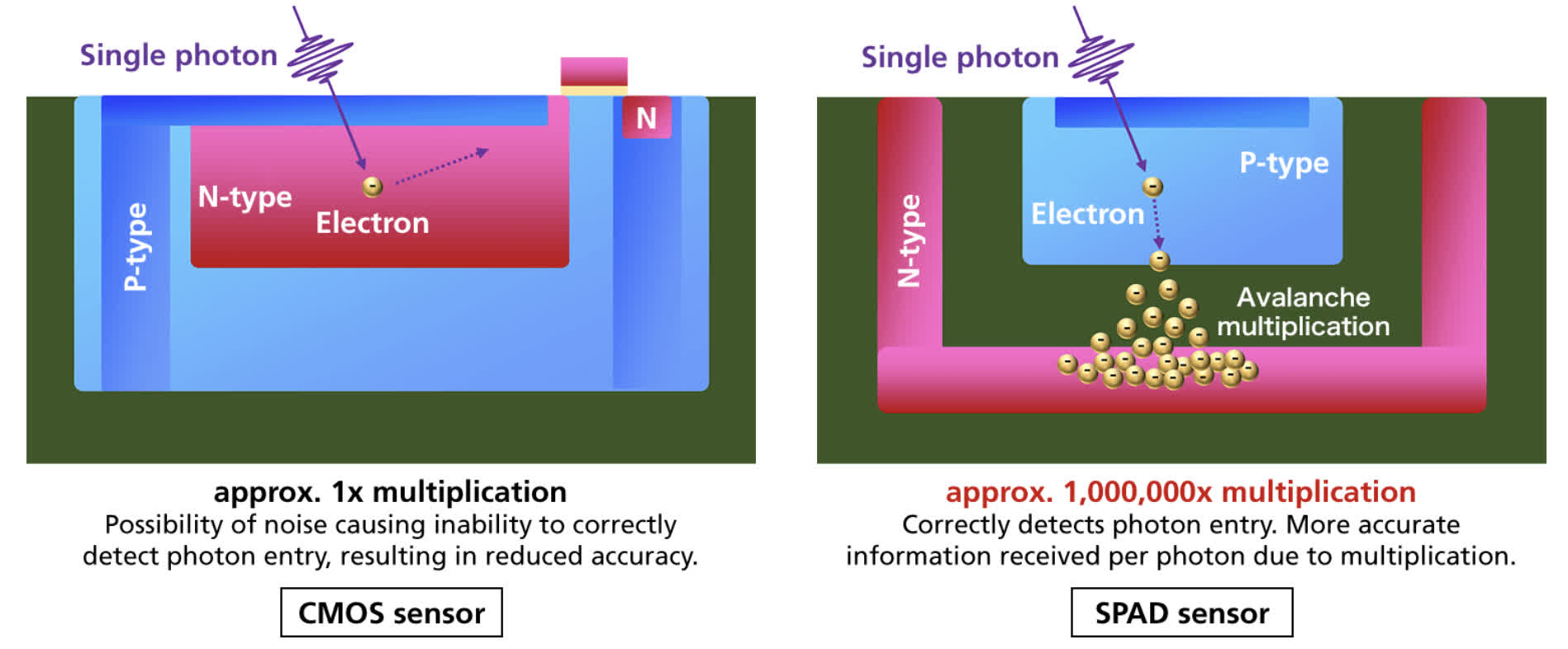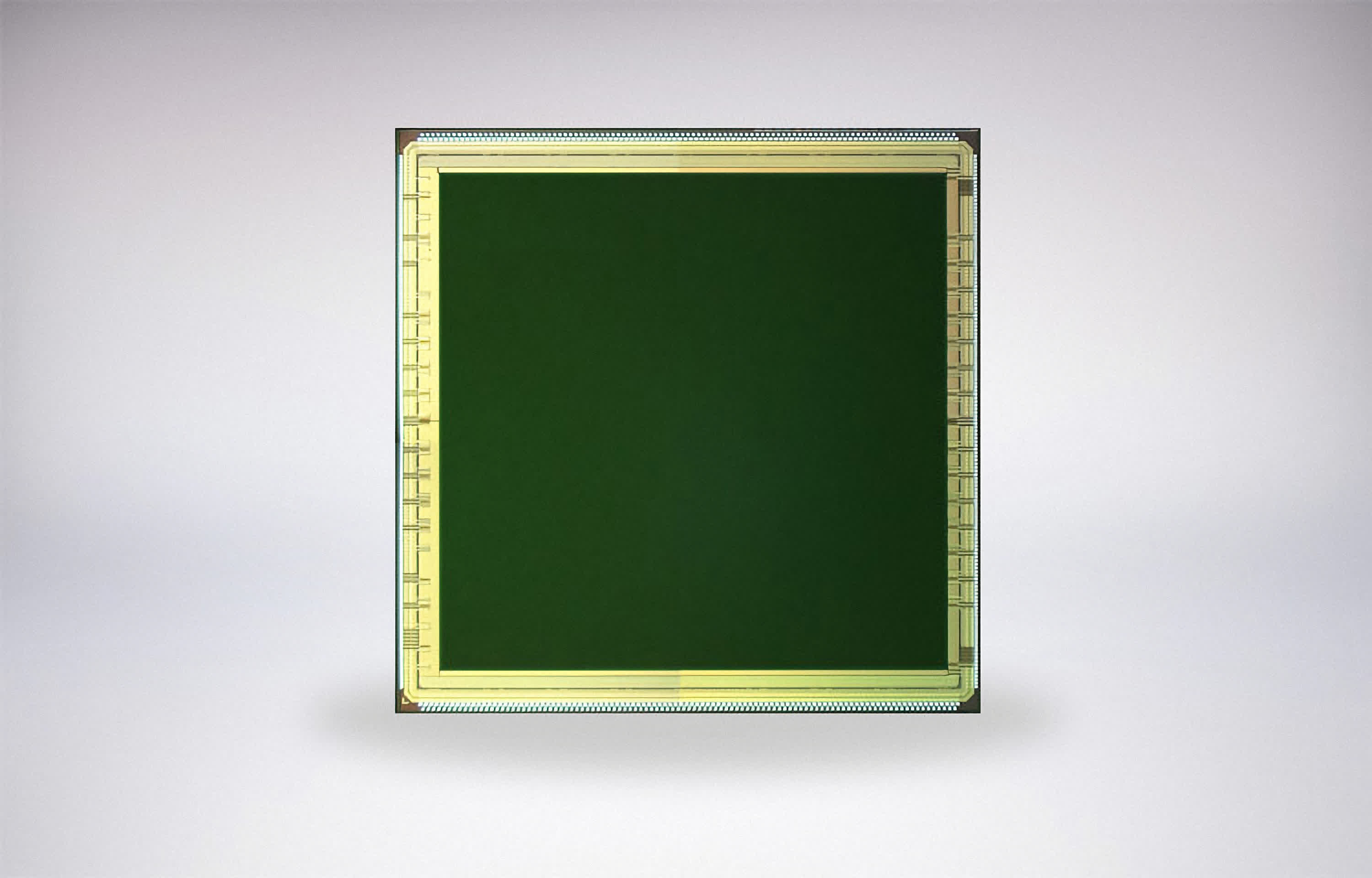In brief: While manufacturers have been able to cram many millions of pixels into tiny smartphone camera sensors and improve their sensitivity, Canon made a new type of sensor that's particularly great in low-light scenarios, especially when compared to conventional CMOS sensors.
Canon has developed a new image sensor that is capable of taking high quality color pictures even in dark settings. This could be a boon for photographers, but arguably even more important for applications like self-driving cars, surveillance systems, slow-motion capture, time of flight distance measurements, and mixed-reality.
According to a Nikkei report, the new sensor can capture a very high amount of detail as it only requires one tenth the brightness that conventional sensors need to recognize light. To achieve this performance, Canon wasn't able to use the photodiodes found in conventional CMOS sensors, so it opted for something called a single-photon avalanche diode (SPAD) instead.

A SPAD enables that increased sensitivity to light thanks to its ability to act as a linear amplifier when struck by even as little as a single photon. Canon says its new sensor can be manufactured using the same technique as CMOS sensors and could end up costing roughly the same per unit, assuming the same production yield.
One area where the new sensor won't impress is resolution. However, its 3.2 million pixels do make it the world's densest of its kind, and more than three times better than Canon's previous SPAD sensor.
The company plans to begin mass production sometime in the second half of 2022, and is expected to integrate the new sensor into its security cameras by the end of next year.
